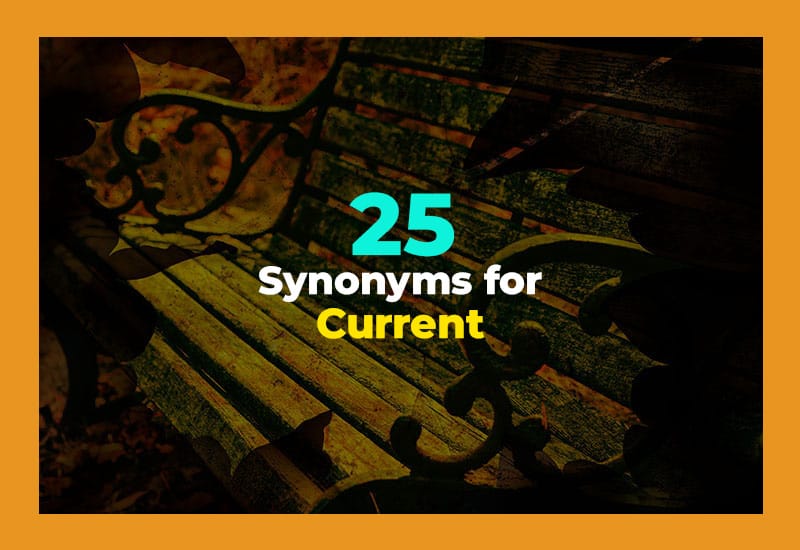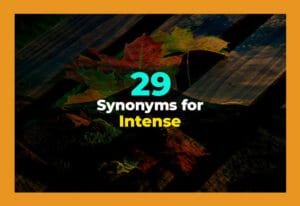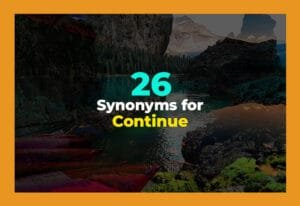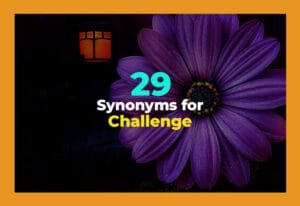You ever find yourself stuck trying to say current in a new way? Maybe you want to sound a bit more interesting or just change things up! Luckily, there are lots of words that can fit depending on what you mean. Whether you’re talking about something happening now, something that’s popular, or even water that's flowing, these synonyms can help you say it right.
1. Present
When you say present, you mean something that is happening right now. For example, “The present situation requires immediate attention.” It can describe the current moment or what is actually here and now. You can say, “She is present at the meeting,” meaning she is here right now. This word is good for formal and casual talks. Think of the present as what you see or deal with today, not the past or future.
2. Ongoing
Ongoing means something that is continuing and hasn't finished yet. For instance, “The ongoing project will be completed next month.” It shows that a task or event is happening right now and will keep going. You can say, “There is an ongoing debate about the new law,” to explain a discussion that hasn't stopped. It's a great word when you want to highlight the action or event is still in progress.
3. Contemporary
The word contemporary describes things or people that exist or happen in the same time period as now. For example, “She enjoys contemporary art,” meaning art created recently or by modern artists. It's often used in history or culture to separate now from the past. You could say, “Contemporary music reflects today's trends,” showing it relates to the present age. This synonym feels a bit more formal and stylish.
4. Existing
If something is existing, it means it's already there and alive at this moment. For example, “We must work with existing resources,” meaning those that are available now. You might hear, “The existing laws will be updated soon,” meaning the laws that are in effect currently. It's useful when you want to talk about something real and present without focusing on time passing.
5. Up-to-date
Up-to-date means having the most recent or current information. For example, “Make sure your software is up-to-date,” so it has all the latest fixes. You could say, “He gave an up-to-date report on the situation,” meaning the report is fresh and includes new facts. This phrase is common when talking about news, technology, or knowledge to show something is not old or outdated.
6. Recent
The word recent talks about something that happened or started not long ago. For example, “The recent changes have improved our service.” You might say, “Recent studies show the benefits of exercise,” meaning the studies were done not long ago. It's good for pointing out new or fresh events or facts that are still important now. It helps connect the past with the present.
7. Modern
Modern refers to things that belong to the present time or are designed with new ideas. For example, “She lives in a modern house with smart technology.” You can say, “Modern medicine has changed a lot,” meaning medicine today is different from the past. It's often used for style, technology, or ways of thinking that are new and improved compared to old times.
8. Latest
The latest means the most recent or newest thing. For example, “Have you seen the latest movie?” or “The latest news is about the election.” It's useful when you want to talk about something fresh and just arrived. You might also say, “He bought the latest smartphone model,” showing it's the newest available. This word is great for staying updated with trends or events.
9. Immediate
Immediate means happening right away or without delay. For example, “We need immediate action to solve this problem.” You could say, “She gave an immediate response,” meaning she answered right then and there. This word stresses urgency and the importance of doing or noticing something now. It's perfect when you want to make sure people know something can't wait.
10. Now
The word now is simple and direct. It means at this very moment. For example, “I am busy now, but I'll call you later.” You might say, “Now is the best time to start,” which means don't wait. It's very casual and can fit in almost any situation where you want to talk about the present time or moment. Using "now" keeps things clear and easy to understand.
11. Actual
Actual means real or existing right now. For example, “The actual cost was higher than expected.” You can say, “What is the actual reason for the delay?” meaning the real or true reason. It's useful when you want to show the difference between what was planned or thought and what is really happening at this moment. It gives clarity and truth to your talk.
12. Happening
When something is happening, it is going on or taking place right now. For example, “What's happening outside?” means asking about current events. You might say, “There is a lot happening in the city this weekend,” meaning many events are going on. It's a lively word and works well in casual talk when you want to show things are active and moving.
13. Current-day
Current-day means related to today or this period of time. For example, “Current-day problems are different from the past.” You could say, “The book talks about current-day technology,” meaning technology that exists today. It helps make a clear comparison between now and other times. Use it when you want to be specific about the time period you're discussing.
14. In progress
In progress means something has started and is still going on but not finished. For example, “The repairs are in progress and will finish soon.” You can say, “There is a project in progress at school,” meaning students are still working on it. This phrase helps describe actions or events that are actively happening and need more time to complete.
15. Today's
Today's means belonging to or happening on this day or the present time. For example, “Today's weather is sunny and warm.” You could say, “Today's technology makes life easier,” meaning the technology available now. It's a simple way to talk about things related to the current day or period. Use it to keep your sentences fresh and clear.

Final Thoughts
Choosing the right synonym for current can make your speaking or writing more interesting and clear. Whether you want to sound casual or formal, there's a word to match your style. These simple alternatives help you explain time, progress, or relevance better. Next time you want to talk about something now, try one of these words and see how your message feels fresh and new!









